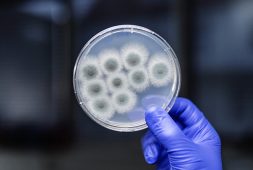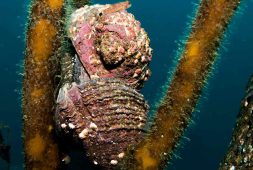Rats Trained To Smell Tuberculosis And Have Proven To Be More Sensitive Than Microscope Testing

Let’s acknowledge the undeniable truth: rats have never been the most adored creatures. Throughout history, their reputation has been marred by events like the devastating Black Death and even modern portrayals in Netflix documentaries highlighting New York’s persistent rodent problem. Consequently, they have often been labeled as the most disliked mammals on our planet.
However, in the lands of Kenya and Tanzania, a remarkable transformation is taking place, as rats are being harnessed not to cause disease but to combat it. These small creatures are now becoming valued members of society instead of outcasts.
The pioneering APOPO Project has already achieved tremendous success by training rats to detect the presence of landmines—an enduring consequence of warfare that has claimed countless lives. Now, scientists have embarked on a new mission: training these resourceful rodents to utilize their exceptional sense of smell to sniff out tuberculosis, a formidable and widespread disease. Astonishingly, the rats have shown even greater sensitivity in their detection abilities compared to traditional microscope testing methods.
What sets these African giant pouched rats, also known as Gambian pouched rats, apart is their extraordinary capability to identify the unique olfactory characteristics of TB, regardless of whether or not a person is infected with HIV. This breakthrough has the potential to revolutionize existing TB testing practices, which are often hindered by the complicating factors associated with HIV.
By embracing these intelligent and trainable creatures, the communities in Kenya and Tanzania are unlocking a new frontier in disease detection and prevention. Rats, once vilified, are now being hailed as heroes in the ongoing battle against tuberculosis, their contributions rewriting the narrative surrounding these oft-misunderstood animals.
“That is, they can easily identify tuberculosis in people living with HIV, keeping in mind that these people living with HIV, it is very difficult to be diagnosed by the standard test, including Genexpert in microscopes,” Joseph Soka, the program manager for TB at APOPO, said when he spoke to Africa News.
Tuberculosis still sadly takes the lives of millions of people all over the world, and in the Tanzanian capital of Dar es Salaam, the APOPO rats have become the most used tool instead of the normal testing methods in 21 different health clinics.
“So, the conventional laboratory techniques can take anywhere from two hours to even 14 days per sample, depending on what technique you use,” said Dhaval Shah. He is a veterinary pathologist at Pathologists Lancet Kenya.
“While the rats will be able to complete testing of fifty samples within two hours and this would be ideal in far places or remote places like Mozambique or places in Mozambique which are rural.”

The progress of the TB project surpasses that of landmine clearance. When the ground is clear of vegetation and paths are established for handlers to safely navigate, each rat, in conjunction with conventional equipment, can search up to 400 m2 (4,300 sq ft) per day as a part of a team.
Rats prove to be efficient minesweepers by disregarding old screws, nails, coins, and other materials that impede the manual mine clearance process using metal detectors, which is often slow and tedious.
However, training the rats requires an investment of approximately $6,500. This fact, coupled with APOPO being the sole organization in the world employing rats for this purpose, further highlights the actual effectiveness of rats as minesweepers.



